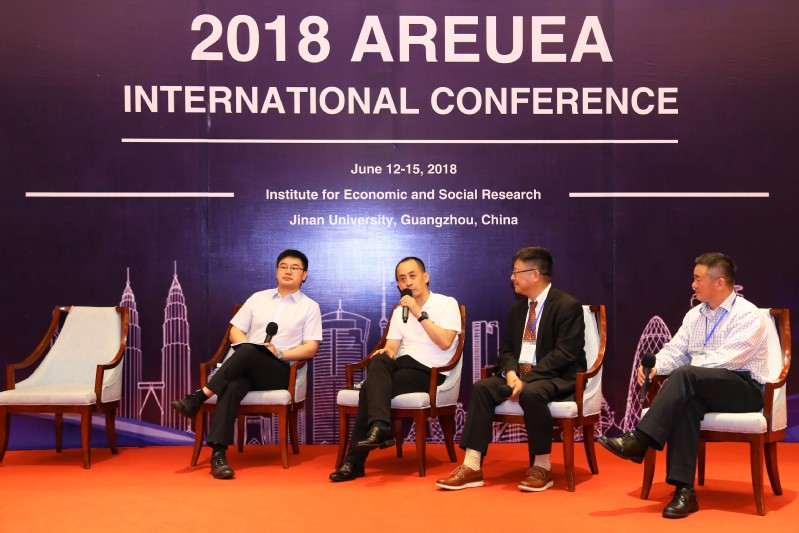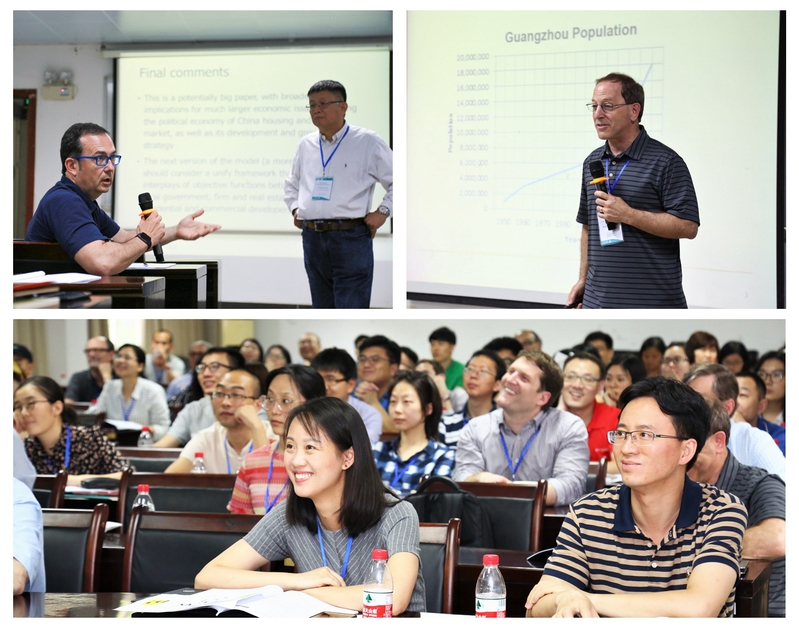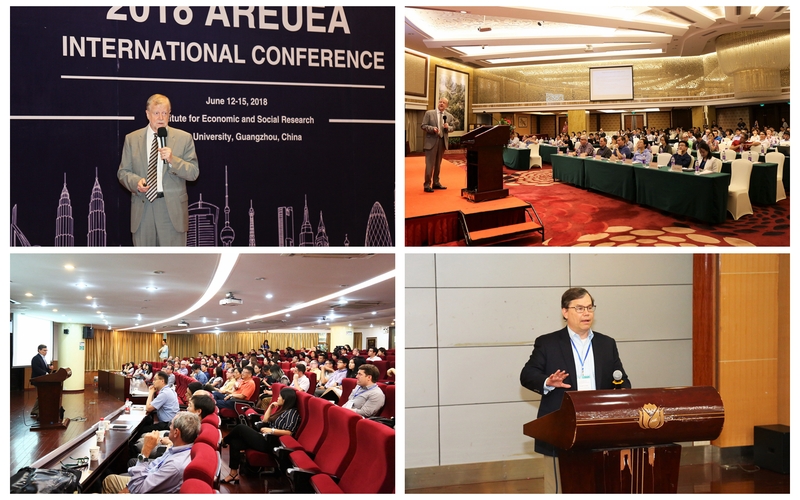From June 12th to 15th, 2018, IESR hosted the annual AREUEA International Conference – a leading multinational forum aimed at addressing various global developments affecting real estate and urban economics. The conference attracted more than 160 scholars from all over the world to disseminate theoretical and empirical research in real estate economics, real estate finance and urban economics, and also exchange ideas on applied decision making in the related areas.

The conference saw the industry panel on real estate development, urban planning and financial markets, which was moderated by Sheridan Titman (University of Texas at Austin). The panelists – Yongheng Deng (UW-Madison), Yang (Rick) Wang (Center of Real Estate Strategic Investment), Vincent Yao (Georgia State University) and Meng Yu (Housing and Settlements Institute at China Academy of Urban Planning and Design) discussed how developers, financial market participants, planning commissions and other government authorities interact to determine development choices. The discussion focused on choices that determine the density of an area as well as the mix between residential, commercial and retail properties. The panelists also paid particular attention to the interaction between transportation infrastructure and real estate planning.
At the conference, 14 presentations were delivered at a poster session, and more than 100 papers were presented over 27 parallel sessions that focused on housing price volatility, taxes and local public finance, urban shocks, mortgage, spatial patterns and urban productivity, and so on.

On top of the real estate industry panel, a range of outstanding presentations at the poster session, and two days of rigorous discussions in the parallel sessions, the highlight of the whole AREUEA conference were two keynote speakers – Vernon Henderson (London School of Economics) and Joe Gyourko (University of Pennsylvania).
Vernon Henderson: Success of Chinese Cities and Urbanization: Constraints in Factor Markets
The talk examined the aspects of capital, labor and land markets in China and how various specific regulations and government controls on factor markets affect city growth and other urban outcomes. These include pricing of capital, land quotas, FAR regulations and the like. A key issue is favoritism of political cities in land and capital markets which induces in-migration into large political cities. Local governments then seek to restrain in-migration but have had limited success. The talk discussed aspects of migration and migration restraints and why such policies may have had limited success in forestalling unwanted in-migration
Joseph Gyourko: Evaluating Housing Market Risk in Chinese Cities: What Can We Learn from the American Experience?
Considering the extraordinary boom in Chinese housing markets, Joseph Gyourko used past U.S. housing market cycles as a reference point to evaluate different risks and opportunities in China’s markets. While the nature of the two countries’ housing markets is very different in some respects, there are important similarities and, according to professor, there is much to be learned from a comparative analysis. The talk identified those similarities and differences, and outlined what they imply for housing market performance across China’s cities.

2018 AREUEA International Conference went down smoothly, thus giving everyone an exceptional opportunity for vast professional development and insightful academic exchanges.


